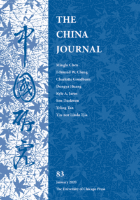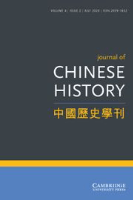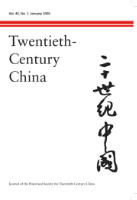
Use the tabs below to find information on using WPI Library Search, using the library's databases, finding books, finding journal articles, finding primary sources, and getting full-text access to resources.
WPI Library Search (the main search box on the library homepage) searches across most of the library's resources at once and can be used to find books, articles, and more. Enter your keywords to get started. Then use the tips below to refine your search results.
Use these search terms to narrow or broaden your search:
|
Term |
Example |
Result |
|
AND |
Mao AND proletariat |
Narrows the search to entries containing both terms. |
|
OR |
Tse-Tung OR Zedong |
Broadens the search to entries containing either term. |
|
NOT |
Stonewall NOT Jackson |
Excludes entries containing the second term. |
|
“ ” |
“Cultural Revolution” |
Retrieves results containing the exact phrase in quotes. |
|
? |
globali?ation |
Wildcard: Retrieves both globalization and globalisation. |
|
* |
proletaria* |
Truncation: Retrieves proletariat, proletarian, proletarians, etc. |
After you search, refine your search results using the filters on the left. Filter by availability, resource type, publication date, and more.

Use the databases listed below to find journal articles, books, and book chapters related to your research topic.
Online archive of eBooks and complete backruns of scholarly journals in a variety of academic fields.
Historical abstracts of global history research journals, covering 1450 to the present.
Full text access to scholarly humanities, social sciences, and mathematics journals.
Indexing and full text of hundreds of journals, books and other published sources from around the world on various humanities topics.
A powerful search tool to streamline your library research. Entering terms into a single search box yields results that include: books and e-books, research and news articles, project reports, electronic theses and dissertations, archival materials, patents, open access collections and more.
Google search for scholarly literature, including peer-reviewed papers, theses, books, preprints, abstracts and technical reports on all topic areas. Use to find articles from academic publishers, professional societies, prepublication repositories and universities.
Books are a vital sources of historical scholarship. To find books at the Gordon Library, type your keywords into the WPI Library Search. Use the drop-down menu to the right of the search box to select "Books & Media."
To limit your search to online books, go to the Availability filter on the left and select Available online.
To limit your search to print books, go to the Availability filter on the left and select Available on shelf.

Ebooks: Many of Gordon Library's books are available digitally, and you can access these via the links in WPI Library Search. For example:
Print books: Print books in the library are organized by call number. When you find a print book in the WPI Library Search, look for the book's call number:
Call numbers A-N are on the ground floor of the library. Call numbers P-Z are on the 1st floor. (Please note that the main entrance to the library is on the 2nd floor.)
Guide to Library of Congress Call Numbers
You can check books out at the information services desk on the main floor. Your WPI ID is your library card.
Look for books that are written by academic historians. Research the author to see what their credentials are. Look for authors who have a PhD in History or related field. Look for authors who are university professors.
Look for books from academic publishers. Research the publisher of the book. What is the aim of the publisher? To reach an academic audience? A more general audience? A juvenile audience?
Listed below are examples of books about Mao Zedong and Maoism.
A peer-reviewed journal is a respected publication. Before articles are published within these types of journals, they are sent by the editors of the journal to other scholars in the field ("peers"), often anonymously, to get feedback on the quality of the scholarship, review research methods, as well as relevance or importance to the field. The article may be accepted, often with revisions suggested, or rejected for publication. Many peer-reviewed journals have low acceptance rates.
Peer-reviewed articles are typically substantial in length (often 10 pages or more) and typically have many citations.
To find peer reviewed articles in WPI Library Search, enter your keywords and then choose the Peer-Reviewed Journals filter on the left.










To find book reviews in WPI Library Search, enter your keywords (such as the name and author of the book you are reviewing). On the search results page, go to the Resource Type filter on the left and select Reviews.

You can also find book reviews in the History Databases. For example, in JSTOR, go to the Advanced Search page.

On the Advanced Search page, enter your search terms. Go to Item Type and select Reviews. Then click on Submit Advanced Search.

Primary sources are materials that provide firsthand testimony to a subject under investigation. Researchers often use these firsthand accounts of specific events to understand events from the viewpoint of people living during that time period. Primary sources include letters, diaries, photographs, newspaper articles, and pamphlets. Primary sources also include writings and recordings by witnesses who experienced the events or conditions being documented. For example, oral histories, autobiographies, and memoirs are primary sources.
Search full text and images 1851-2021 including news, illustrations, editorials, and advertisements.
In the New York Times Historical database, go to the Advanced Search page and enter your keywords. Under Publication Date, select "Specific Date Range," and enter the dates you are studying.

Online archive of eBooks and complete backruns of scholarly journals in a variety of academic fields.
To find primary sources in JSTOR, enter your keywords. On the search results page, go to the "Primary Source Content" filter on the left, and select Serials, Documents, Books, and/or Images.

Or you can browse JSTOR's primary source collections. Collections you may interested for this class include:
To find primary sources via Google, try adding keywords like primary sources, documents, archives, journals, papers, letters, or documentary history to your search terms. Primary sources can often be found on library, museum, and government websites.
Here are some examples of websites that have primary sources for history of revolutions in the 20th century:
Sometimes collections of primary source documents are republished in books. To find books like these, search WPI Library Search for books about your topic and add keywords like sourcebook, documents, primary sources, documentary history, papers, letters, journal, diary, memoir, or autobiography to your search terms. You can also search for books writen by key figures in the revolution that you are studying.
Here are some examples of books containing primary sources:
 Selected Works of Mao Tse-Tung: Volume IV
by
Selected Works of Mao Tse-Tung: Volume IV
by
 Selected Works of Mao Tse-Tung: Volume V
by
Selected Works of Mao Tse-Tung: Volume V
by
When searching in the library's databases, you may find an abstract for an article but not the full-text. When this happens, click on the FullTextFinder icon.

The FullTextFinder will either redirect you to another database that has the full-text of the article or it will tell you that we don't have this article in our collections. If we don't have an article that you need, request the article via Interlibrary Loan. Interlibrary Loan (ILL) is a service that allows WPI students and faculty to request items from other libraries free of charge.
Is there something you need that the WPI library doesn't have? Our Interlibrary Loan service allows WPI students and faculty to request items from other libraries free of charge.
Use WorldCat.org to search for books, articles, and more at libraries around the world. Request materials from other libraries via Interlibrary Loan.
The Academic and Research Collaborative (ARC) allows member users to borrow directly from Worcester area libraries. Before you can borrow materials directly from participating libraries, you need to sign up for an ARC card in person at the Gordon Library's Information Desk. Pick up your ARC card today!
As a resident of Massachusetts, you can sign up for a library card at the Worcester Public Library (WPL). WPI students with a college ID can are eligible for WPL cards. You can also sign up for an ecard, which allows you to access the WPL's online resources.
As a resident of Massachusetts, you can also sign up for a library card at the Boston Public Library (BPL). Students who live in Massachusetts while attending school are eligible for a BPL card. The BPL also has an option for an ecard, which allows you to access the BPL's online resources.